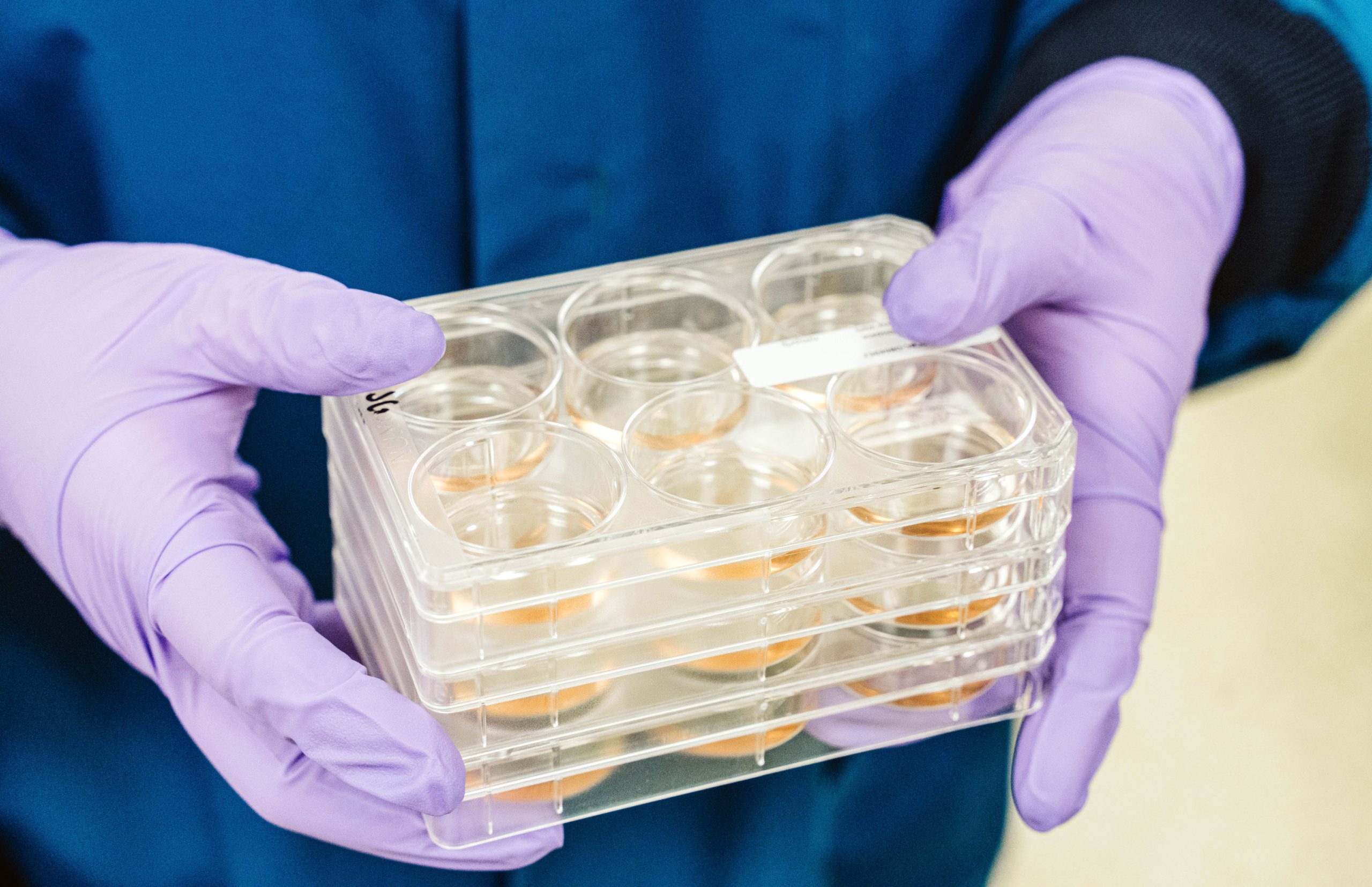NHLBI Next Gen - QT Interval and ECG Cardiac Traits (Dr. Kelly Frazer, University of California San Diego)
About Frazer Lab’s Next Gen Cell Lines
This collection, from Dr. Kelly Frazer (UC San Diego), was generated to enable both familial and association-based genetic studies in iPS cells and derived cell types.
The iPSCORE (iPSC Collection for Omic Research) resource contains 222 iPSC lines that were systematically derived and characterized. iPSCORE lines are pluripotent and generally have high genomic integrity (~90% of lines carry either no detectable CNVs or CNVs spanning less than 2 Mb) as determined using high-throughput RNA-seq and genotyping arrays, respectively. Participants were recruited to include 41 families, twins, and individuals of diverse ethnicity to enable genetic studies investigating the segregation of traits. Due to the fact that some of the individuals in the 41 families are only related by marriage, there are a total of 136 genetically unrelated individuals in the collection. While most participants in the collection do not have heart disease, there were 25 individuals with arrhythmia (some with multiple types), 13 with cardiomyopathy and one with structural cardiac malformations. Using whole genome sequence data generated from the blood of cardiac disease probands and their families, we examined genetic variation at candidate disease genes and identified four potentially disease-associated variants affecting two families and two singletons. The iPSCORE resource provides a powerful tool to examine how genetic variants influence molecular and physiological traits across a variety of derived cell types, as well as to functionally interrogate variants underlying a variety of GWAS phenotypes.
A publication describing whole genome sequencing (WGS) data for 18 of the cell lines in this collection, which contains WGS for females and males from five different ethnicities, may be found here.
Additional information regarding relationships can be found here.
About the Next Generation Genetic Association Studies (Next Gen) Program
These cell lines were created as Next Generation Genetic Association Studies (Next Gen) Program, which was a five-year, $80 million program to investigate functional genetic variation in humans by assessing cellular profiles that are surrogates for disease phenotypes. To achieve this, researchers from multiple institutions across the U.S. were awarded grants to derive iPS cell lines from more than 1,500 individuals representing various conditions as well as healthy controls for use in functional genomic (‘disease in a dish’) research. This extensive panel includes a diverse set of age, gender and ethnic backgrounds, and therefore will be an invaluable tool for evaluations across demographics. Further enhancing the utility of these cell lines are data sets such as phenotyping, GWAS, genome sequencing, gene expression and -omics analyses (e.g., lipidomic, proteomic, methylomic) that will be made available with the cell lines.
Showing 1–16 of 229 results
Cell Line | Cell Line Alias | Cell Type | Disease | Genetic Alteration/Mutation | Sex | Age at Collection | Ethnicity | Genetically Related Cell Lines | dbGaP Data |
|---|---|---|---|---|---|---|---|---|---|
iPSCORE_5_1 | Human iPS | None reported | Female | 43 Years | Caucasian > European | Yes | Yes | ||
iPSCORE_16_1 | Human iPS | None reported | Male | 51 Years | Asian > Indian | Yes | Yes | ||
iPSCORE_16_2 | Human iPS | None reported | Female | 47 Years | Asian > Indian | Yes | Yes | ||
iPSCORE_42_1 | Human iPS | Hypertrophic Cardiomyopathy | Female | 61 Years | Caucasian > European | No | Yes | ||
iPSCORE_43_1 | Human iPS | Left ventricular non-compaction | Male | 18 Years | African American | No | Yes | ||
iPSCORE_21_1 | Human iPS | None reported | Male | 55 Years | Caucasian > European | Yes | Yes | ||
iPSCORE_21_2 | Human iPS | None reported | Female | 47 Years | Caucasian > European | Yes | Yes | ||
iPSCORE_44_1 | Human iPS | Left ventricular non-compaction | Male | 37 Years | Caucasian > European | No | Yes | ||
iPSCORE_5_2 | Human iPS | None reported | Female | 10 Years | Caucasian > European | Yes | Yes | ||
iPSCORE_5_3 | Human iPS | None reported | Male | 9 Years | Caucasian | Yes | Yes |
